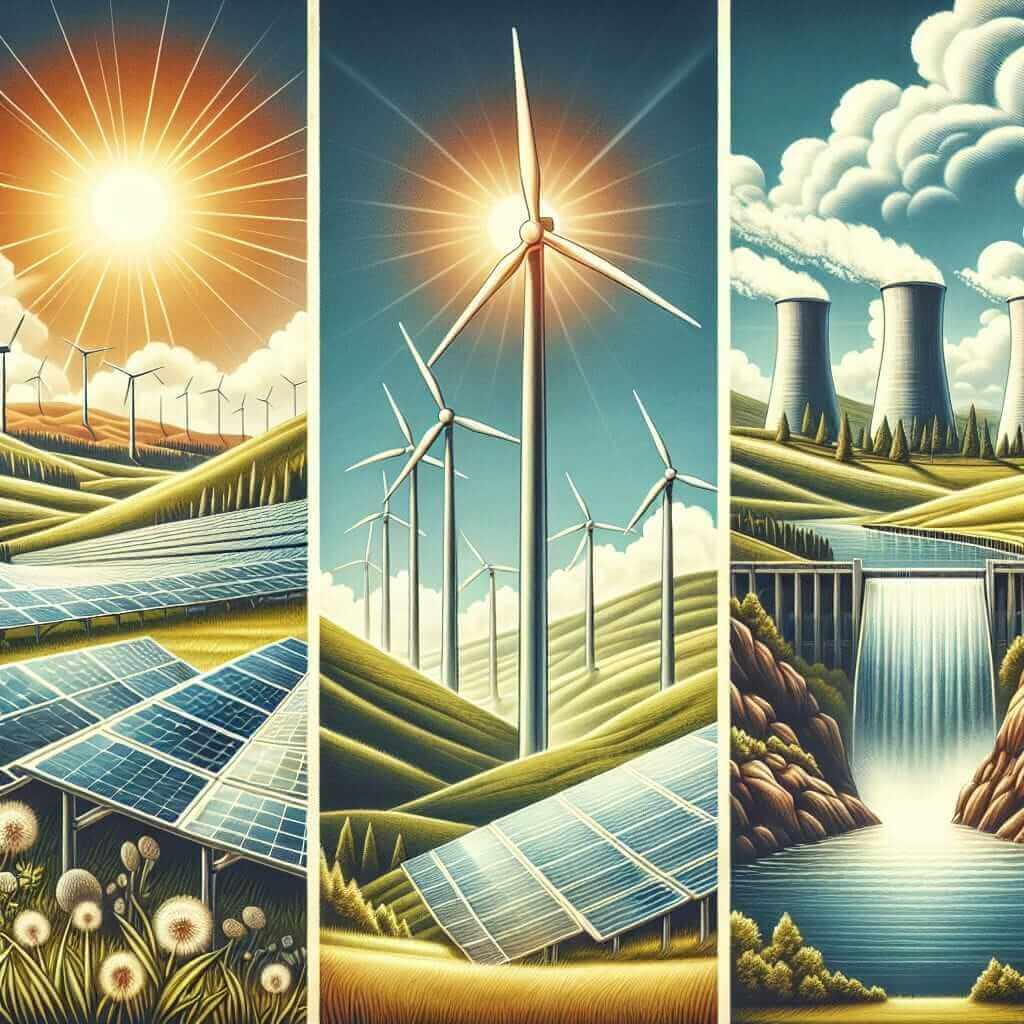The IELTS Reading section is a crucial component of the IELTS exam, designed to assess your ability to read and comprehend texts. One of the recurring themes in recent years has been renewable energy and its impacts on national economies. Given the global shift towards sustainable sources of energy, this topic has gained prominence in IELTS reading passages. In this guide, we will discuss the effects of renewable energy on national economies and provide a practice reading passage with relevant questions and answers.
Practice Reading Passage
Renewable Energy and Economic Impacts
Renewable energy sources such as wind, solar, and hydropower have become increasingly significant in the global energy landscape. As countries strive to reduce their carbon footprints and combat climate change, the adoption of renewable energy technologies has surged. This transition not only helps in environmental conservation but also impacts national economies in various ways.
Firstly, the renewable energy sector creates numerous job opportunities. According to a report by the International Renewable Energy Agency (IRENA), the renewable energy industry employed over 11 million people worldwide in 2018, and this number is expected to grow. Jobs are generated across various segments including manufacturing, installation, and maintenance of renewable energy systems.
Moreover, renewable energy sources can enhance energy security. By diversifying the energy mix, countries can reduce their dependency on imported fossil fuels, thereby minimizing vulnerability to global energy price fluctuations and geopolitical tensions. For instance, countries like Germany and Denmark have significantly reduced their reliance on imported coal and gas by investing in wind and solar energy.
 Renewable Energy Investment
Renewable Energy Investment
Financially, renewable energy projects attract substantial investments, which can stimulate economic growth. Government incentives, private sector investments, and international funding mechanisms have all contributed to the expansion of renewable energy infrastructure. These investments not only foster technological innovation but also contribute to regional development by building new energy facilities.
Additionally, the economic benefits of renewable energy are complemented by environmental and health advantages. Cleaner air and fewer greenhouse gas emissions can lead to reduced healthcare costs and improved public health, further supporting economic stability.
However, transitioning to renewable energy also presents challenges. The initial capital investment for renewable energy infrastructure can be high, which may be a hurdle for some countries. Moreover, integrating renewable energy into existing power grids requires significant technological adaptations and regulatory reforms.
In summary, the effects of renewable energy on national economies are multifaceted. While it offers substantial economic, environmental, and health benefits, careful planning and investment are necessary to overcome the challenges associated with this transition.
Questions
Multiple Choice
-
According to the passage, how many people were employed in the renewable energy sector worldwide in 2018?
A. 7 million
B. 9 million
C. 11 million
D. 13 million -
What is one way that renewable energy can enhance energy security?
A. Increasing dependency on imported fossil fuels
B. Reducing vulnerability to global energy price fluctuations
C. Increasing greenhouse gas emissions
D. Reducing job opportunities
True/False/Not Given
- Renewable energy adoption has led to a decrease in job opportunities worldwide.
- Denmark has reduced its reliance on imported coal and gas through investment in renewable energy.
Matching Information
Match the following statements (5-6) with the correct information from the passage (A-D):
Statements:
5. Renewable energy projects attract substantial investments.
6. Renewable energy transition can improve public health.
Information:
A. Cleaner air and fewer greenhouse gas emissions
B. Government incentives and international funding mechanisms
C. Initial capital investment can be high
D. Reduced vulnerability to geopolitical tensions
Short-Answer Questions
- Name two segments within the renewable energy industry where jobs are generated.
- What challenges are associated with integrating renewable energy into existing power grids?
Answers
Multiple Choice
- C – 11 million
- B – Reducing vulnerability to global energy price fluctuations
True/False/Not Given
- False – The passage mentions that the renewable energy sector creates numerous job opportunities.
- True – It is mentioned that countries like Denmark have significantly reduced their reliance on imported coal and gas by investing in wind and solar energy.
Matching Information
- B – Government incentives and international funding mechanisms
- A – Cleaner air and fewer greenhouse gas emissions
Short-Answer Questions
- Manufacturing, installation, and maintenance of renewable energy systems
- High initial capital investment and significant technological adaptations for integrating renewable energy into existing power grids
Common Mistakes to Avoid
- Misinterpreting data and statistics: Ensure you comprehend the data presented in the passages accurately.
- Skimming too quickly: While skimming can help, ensure you do not miss out on crucial information which might be essential for answering the questions accurately.
- Overlooking question types: Familiarize yourself with different question types such as True/False/Not Given and Matching Information to avoid confusion during the test.
Vocabulary
Here are some crucial terms from the passage:
- Carbon footprint (noun): The amount of carbon dioxide emissions for which an individual or organization is responsible.
- Example: Reducing our carbon footprint is essential to combat climate change.
- Geopolitical tensions (noun): Political tension between different countries or regions.
- Example: Geopolitical tensions can impact global energy prices.
- Infrastructure (noun): The basic physical and organizational structures needed for the operation of a society or enterprise.
- Example: Developing renewable energy infrastructure is crucial for sustainable growth.
Grammar Focus
Focus on the following grammatical structure from the passage:
- Conditional Sentences (If + present simple, will + infinitive): Used to express possibilities or hypothetical situations.
- Example: “If countries invest in renewable energy, they will reduce their carbon footprint.”
Tips for Scoring High in IELTS Reading
- Practice regularly: The more you practice, the more comfortable you’ll become with the types of passages and questions.
- Manage your time: Allocate your time wisely to ensure you can answer all questions.
- Build your vocabulary: A good vocabulary can help you understand complex texts better.
- Focus on understanding: Aim for a deep understanding of the passage instead of just looking for answers.
By integrating these strategies and consistently practicing, you can enhance your performance in the IELTS Reading section. Good luck!


